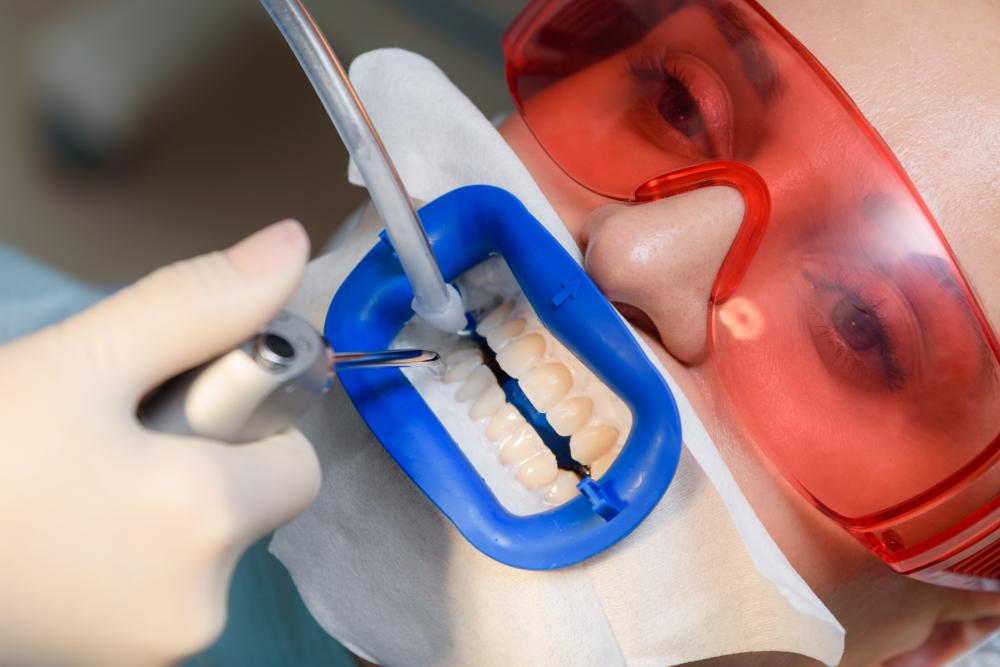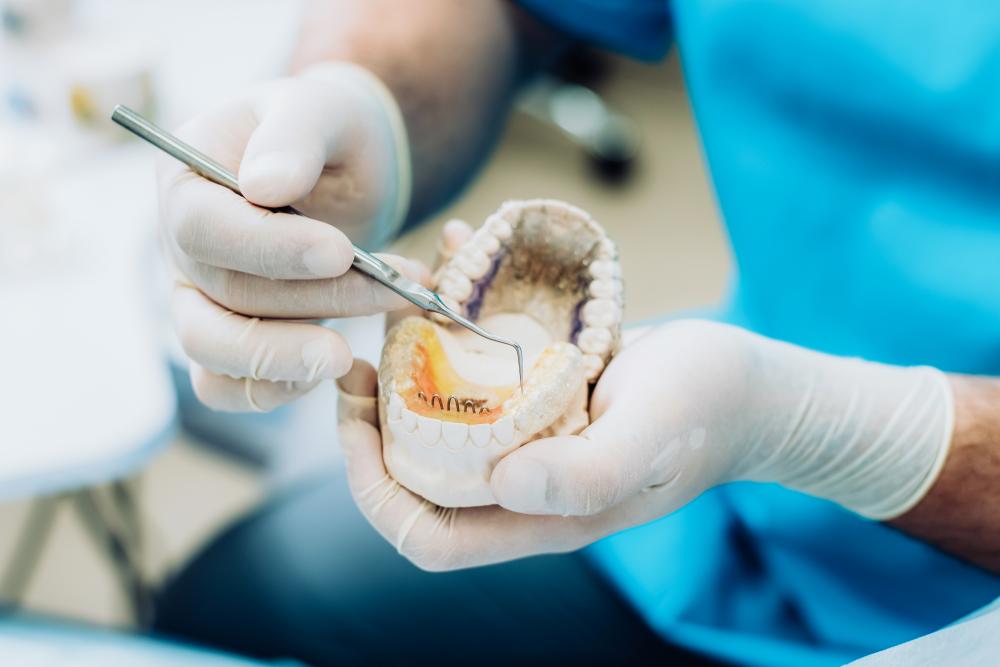Grinding Teeth Newbury Park
Table of Contents

Understanding Teeth Grinding
Grinding Teeth Newbury Park is more common than most might think. It is a condition that affects both children and adults, known medically as bruxism. This involuntary habit can lead to a range of dental and health issues, many of which go beyond mere discomfort. At the TMJ & Sleep Therapy Centre of Los Angeles & Conejo Valley, we see firsthand the impact that teeth grinding can have on our patients' lives.
Teeth grinding often occurs during sleep, making it a condition that many are unaware of until they are informed by a sleeping partner or diagnosed by a dental professional. Symptoms include wear on the teeth, jaw pain, headaches, and in severe cases, disorders of the TMJ (temporomandibular joint). Understanding this condition is the first step to mitigating its effects and improving patients' oral and overall health.
Causes of Teeth Grinding
The reasons behind Grinding Teeth Newbury Park vary widely. Stress and anxiety are leading causes in adults, while in children, the causes can be multifaceted. Misaligned teeth, response to pain from earaches or teething, and other health concerns can contribute to children grinding their teeth. Identifying the underlying cause is crucial in tailoring an effective treatment plan.
Treatment Options
At our center, our approach to treating Grinding Teeth Newbury Park is holistic, focusing on the body as a whole instead of just the symptoms. For many, a custom-fitted night guard provides immediate relief. These appliances are designed to prevent teeth from grinding against each other, protecting them from damage and reducing stress on the jaw muscles and joints.
Beyond night guards, we may recommend stress reduction techniques, exercises to strengthen the jaw muscles, or even orthodontic solutions to address misalignment issues. In cases where Grinding Teeth Newbury Park is related to sleep disorders like apnea, specialized sleep appliances or interventions may be necessary.
Our practice also embraces alternative therapies. Acupuncture, for example, has shown promising results in managing pain and alleviating stress, factors that can contribute to teeth grinding. Oriented towards a comprehensive wellness approach, these treatment modalities echo our commitment to enhancing well-being without immediate recourse to invasive procedures.
Personal Insights and Success Stories
Over the years, we've witnessed remarkable transformations in patients who've come to us for help with Grinding Teeth Newbury Park. One particular case that stands out is a young professional who developed severe bruxism as a result of workplace stress. Traditional treatments had failed to provide relief, and they were suffering from jaw pain and sleep disruption. A combination of a custom night guard, acupuncture, and stress management techniques not only alleviated their symptoms but also significantly improved their quality of life.
This success story underscores the importance of a personalized approach. What works for one patient may not work for another, which is why we prioritize getting to know each individual's specific circumstances, health history, and lifestyle factors.
Preventive Measures
Prevention is always better than cure, especially when it comes to Grinding Teeth Newbury Park. We encourage regular dental check-ups to catch signs of bruxism early. Educating patients on the importance of stress management and providing guidance on exercises to strengthen the jaw can also play a significant role in prevention.
Lifestyle adjustments, such as reducing caffeine intake and avoiding hard foods that strain the jaw, can be beneficial. We also discuss proper sleep hygiene practices with our patients, as quality sleep is integral to overall health and can minimize the risk of teeth grinding.
Why Choose Us
At the TMJ & Sleep Therapy Centre of Los Angeles & Conejo Valley, we understand the complexities of Grinding Teeth Newbury Park. Our holistic approach, combined with Dr. Shirazi's expertise in Cranio-Facial Pain, positions us uniquely to address not just the symptoms but the root causes of teeth grinding.
Our commitment to non-surgical treatments and the broad spectrum of services we offer, from oral appliances to naturopathic guidance, ensures that our patients receive comprehensive care tailored to their individual needs.
Accessibility is a key part of our mission. With locations in Thousand Oaks and Brentwood, we are well situated to serve patients across the region, providing them with the relief and solutions they need to overcome the challenges of teeth grinding.
Conclusion
Grinding Teeth Newbury Park is a condition that demands attention and care. At the TMJ & Sleep Therapy Centre, we are dedicated to providing our patients with the highest quality treatments, personalized to meet their unique needs. Whether you're suffering from bruxism yourself or are concerned about a loved one, we're here to offer support, expert care, and a pathway to better health and well-being.
If you're struggling with teeth grinding, don't wait for the condition to worsen. Reach out to us, and let's work together towards a solution that brings relief and peace of mind.

What percentage of people grind their teeth at night?
It's estimated that about 8% to 31% of the population grinds their teeth at night, a condition known as nocturnal bruxism. This wide range likely reflects differences in study designs and the populations examined. It's a more common issue than many realize, affecting both children and adults across various demographics. The condition often goes unnoticed until the symptoms become pronounced, making regular dental check-ups an invaluable tool for early detection and management.
Should I see a dentist if I grind my teeth?
Absolutely. If you suspect you're grinding your teeth, consulting with a dentist, especially one with expertise in TMJ and sleep therapy like us, is crucial. Teeth grinding can lead to wear and tear on your teeth, jaw pain, headaches, and even more severe conditions like TMJ disorders. A dentist can diagnose the condition, often identifying telltale signs of bruxism that you might not be aware of, and suggest a treatment plan tailored to your specific needs. Plus, catching it early can save you a lot of discomfort and potentially avoid more invasive treatments down the line.
Why is grinding your teeth at night bad?
Grinding your teeth at night can have a plethora of adverse effects on your oral health and overall quality of life. It can lead to tooth wear, damage to dental work, and increased sensitivity or pain. Beyond the dental issues, bruxism can also cause or exacerbate jaw disorders, such as TMJ, leading to chronic pain, difficulty eating, and even changes in facial appearance. The stress it places on the jaw and facial muscles can result in persistent headaches, especially upon waking. This physical distress can significantly impact one's wellbeing and daily functioning.
Can you fix teeth that have been grinded?
Yes, teeth that have been damaged from grinding can often be repaired, but the approach depends on the severity of the wear. For minor cases, dental bonding or veneers can be effective solutions, restoring the appearance and function of the teeth. More severe cases might require crowns to protect the teeth from further damage. However, treatment is not solely about fixing the damage; it's equally important to address the underlying cause of the grinding to prevent future harm. For many of our patients, a combination of restorative procedures and preventive measures, like wearing a custom-fitted night guard, helps protect the teeth and alleviates symptoms.
What alternative therapies exist for managing teeth grinding?
In our practice, we've seen promising results from alternative therapies, especially acupuncture, which can be highly effective in reducing the stress and muscle tension that contribute to teeth grinding. Additionally, we often recommend stress reduction techniques, including mindfulness and meditation, which have been shown to lessen the frequency and intensity of grinding episodes. It's fascinating how these holistic approaches not only help with bruxism but also enhance overall health and wellbeing, reflecting our commitment to treating patients as whole beings rather than just addressing isolated symptoms.
Why is a personalized approach important in treating teeth grinding?
Teeth grinding, or bruxism, is a complex condition with a variety of potential causes, ranging from stress to misaligned teeth. That's why a one-size-fits-all approach simply doesn't work. At our center, we prioritize getting to know each patient's unique circumstances, health history, and lifestyle factors. This thorough understanding allows us to tailor treatments that address not just the symptoms but the root causes of their condition. It's not uncommon for patients, like the young professional I mentioned earlier, to experience significant improvements when treatments are personalized. Their success story underscores the effectiveness of combining traditional and alternative therapies based on individual needs.
How effective are preventive measures in stopping teeth grinding?
Preventive measures can be highly effective in managing teeth grinding, especially when implemented early on and tailored to the individual's specific risk factors and lifestyle. Regular dental check-ups, stress management, jaw exercises, and avoiding certain foods and beverages can all play a crucial role in preventing bruxism or mitigating its effects. Furthermore, educating patients about proper sleep hygiene and relaxation techniques before bed can significantly reduce the frequency of grinding episodes. Prevention is key; by addressing the contributing factors early, we can often prevent the condition from escalating into more serious dental and jaw issues.
Resources
- Mayo Clinic - Bruxism: Learn more about the symptoms, causes, and treatments for bruxism from the reputable Mayo Clinic.
- Mouth Healthy - Bruxism: The American Dental Association provides information on bruxism, its effects on oral health, and treatment options.
- National Sleep Foundation - Teeth Grinding: Explore how teeth grinding can affect sleep and potential solutions from the National Sleep Foundation.
- National Institute of Dental and Craniofacial Research - TMJ Disorders: Find information on TMJ disorders, including bruxism, from the NIDCR, part of the National Institutes of Health.
